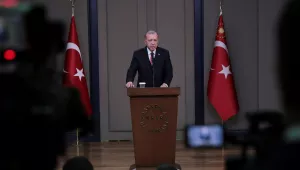During the spring 2015 semester, Professor Michael C. Hudson assembled eight leading Middle East scholars under the auspices of the Middle East Initiative at the Belfer Center for Science and International Affairs to participate in a study group titled Rethinking the Arab State: the Collapse of Legitimacy in Arab Politics. Over the course of the semester these experts used a variety of interdisciplinary approaches to analyze the crisis of legitimacy of the Arab state in the wake of the 2011 uprisings.
Contributors addressed various aspects of the topic, including how relatively ‘strong’ states like Egypt and Saudi Arabia defended their power, how weak (or failed) states like Iraq and Syria have fragmented to competing power bases and ideologies, as well as how Islamism and sectarianism are reshaping the region’s ideological playing field and how regimes mediate minority rights amidst domestic and international pressures.
Contributors include Michael C. Hudson (lead author and editor), Jillian Schwedler, City University of New York, Samer Shehata, University of Oklahoma, Madawi Al-Rasheed, London School of Economics, Yezid Sayigh, Carnegie Middle East Center, Bassam Haddad, George Mason University, Amaney Jamal, Princeton University, Lisa Wedeen, University of Chicago, and Stephen M. Walt, Harvard Kennedy School.
Download the Full Report [PDF]
Key Findings
The report gives an overview of the discussion, including common themes, areas of consensus, and unique insights, which will serve to illuminate further investigation of these critical concepts, even as the Middle East continues to change and evolve. Below is a summary of the common themes and key conclusions from the study group:
• The 2011 uprisings began a long transformation process. It is premature and facile to assert that a participatory “spring” has given way to an authoritarian “winter.”
• Arab states vary in terms of “stateness” and legitimacy, but Arab bureaucracies embed powerful interests in state structures, making the wholesale redrawing of borders unlikely.
• All Arab states lack vibrant, well-integrated civil society in politics. And budding civil society lacks organization and leadership to effectively reshape old autocratic structures.
• Socioeconomic problems underpin political turbulence. Widespread corruption drives illegitimacy. Neo-liberal economic policies are part of the problem.
• Political Islam—while far from monolithic—has flourished in the vacuum created by falling dictators and lack of counterbalance from the liberal “center.”
• Intra-Islamist (Sunni-Shia) Sectarianism is a potent political rift and is easier to inflame than contain, posing huge long-term risks for regimes that have fueled it for their short-term advantage.
• The Middle East can no longer be “managed” by outside powers. U.S. and other military interventions have failed to bring democracy or stability.
For lecture recordings, photos, and more, visit the Rethinking the Arab State homepage.



